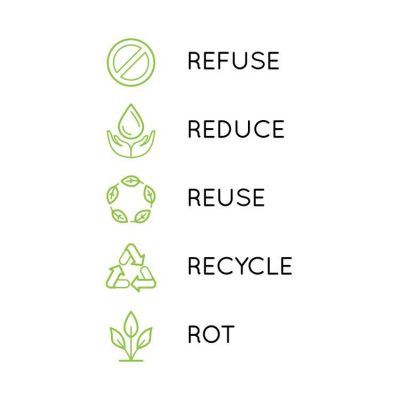Our Home

The Power of Daily Acts
We all have a huge potential to contribute to a healthy world. Developing energy efficient lifestyles are the first step in reducing the environmental impact. Human activity is causing environmental degradation, which is the deterioration of the environment through depletion of resources such as air, water and soil; the destruction of ecosystems; habitat destruction; the extinction of wildlife; and pollution. It only takes one grain of sand to turn the tide. That one grain of sand is each and every one of us. We can make a tremendous difference and minimize our impact on land and water resources.
Be Chemical Free
A good place to start a healthy home is to avoid polluting the internal environment. Home cleaning products are often toxic, always read labels, visit web pages and find the most earth friendly (and family friendly) products. Check out my own home made solution on our blog page. Keep any cleaning products in a safe, cool environment with good ventilation. Many studies have shown that the air inside modern apartments and homes is more polluted than the air outside.
If you are moving into a new home or apartment be aware that many less expensive items such as upholstered couches, chairs and carpeting are made with chemical glues and other products that will “out-gas” when they are in the house.
Adhesives can be found in glues that hold furniture parts together, bonding material for composite woods, and products with the gripping power to attach building materials—like flooring, trim, and wallpaper. Epoxies, polyurethanes, glues, and adhesives can be found in standard mattresses, end tables, couch frames, and headboards. Adhesives are a key ingredient in composite wood, which is produced using a combination of adhesives and wood particles. All of these chemicals are used with greater frequency in less expensive furniture and mattresses. Check on-line for information. There are two things you can do to help keep your home environment healthy – make sure that you have good ventilation (air out your rooms often) and use plants in your house.
Top Tips for A More Sustainable Future
- Stop eating animals, using animal sourced products and supporting businesses that exploit animals
- Buy organically grown food whenever possible.
- Buy less. Don’t buy new items unless you really need them.
- Buy local as much as possible
- Support local recycling
- If you have land start growing as much of your food as possible.
- Use a bicycle or walk as much as possible.
- Use carpool or public transport when available.
- Fly less (we are now teaching online)
- Return vegetable containers and cartons to the farmers at the markets for reuse
- Bring reusable bags when shopping
- Recycle glass jars and use them for storage or decorate and use them for gifts filled with delicious home-made treats
- Eat real food and avoid pre-packaged, processed foods, local, organic where possible
- Buy in bulk, grains, beans, etc.,
- Avoid all plastics, cups, bottles etc., use reusable water bottles and portable cups.
- Repair things that can be repaired
- Avoid single-use items
- Choose organic/ethical clothing
- Make your own household cleaners
- Switch off and unplug electrical equipment when not in use
- Have shorter showers
- Turn off the water when brushing teeth
- Recycle water- never throw it out, cool hot water bottle water… use to water your plants
- Change to LED light bulbs
- Switch off lights when not in the room
- Keep your heating at a comfortable level is more efficient
- Insulate your home and use rugs on the floor if you have tiled or wooden floors
- Do a cool wash and use less detergent than the recommended amount and allow your clothes to dry outdoors when possible avoiding electric clothes dryers
- Washing machine or dishwasher use for full loads only
- Recycle all your junk mail
- Print only when needed and always use both sides and use recycled paper


